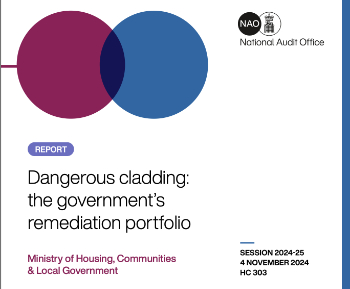Scope of work
The Association for Project Management describes ‘scope’ as ‘The totality of outputs, outcomes and benefits and the work required to produce them’ and ‘scope management’ as ‘The process whereby outputs, outcomes and benefits are identified, defined and controlled’.
In construction, the term ‘scope of work’ (sometimes described as a ‘scope of works’, ‘statement of work’ or 'terms of engagement') is a very general, and sometimes ambiguous term referring to a general description of the work that is expected to be performed under a particular contract. It may be prepared by the client or their consultants and included in tender documentation for construction works.
The nature of the scope of work can vary significantly from project to project. Sometimes it will simply offer a very broad description of the works required, whilst sometimes it provides a complete description of the project, significant milestones, a programme of work with the expected time frames for delivery, reports, pricing, deliverables, roles and responsibilities and end products that are to be provided.
For more information, see What should be included in a scope of work?
A scope of work can be a useful way of agreeing broad project requirements for both the client and supplier. However, errors or inconsistencies with other contract documentation can lead to confusion and uncertainties which are often cited as a cause of disputes on construction projects.
It is common for changes to be required to the scope of work after the contract has been awarded. Most forms of contract make provisions for the contract administrator to instruct reasonable variations which may give rise to additions or deductions from the contract sum, however, these variations must not change the nature of the works themselves. In some cases, the works may be tendered before the scope of work is known in detail. In this case, provisional sums may be included in the contract, or flexible procurement routes adopted such as measurement contracts or prime cost contracts.
The term ‘scope of work’ is generally used to refer to construction activities, however, a ‘scope of services’ which describes the services a consultant will be performing on a project may also sometimes be referred to as a scope of work.
Confusingly, the term ‘scope of work’ can also used interchangeably with the term ‘schedule of work’. However, a schedule of work has a more specific meaning, referring to 'without quantities' instructional lists often produced on smaller projects or for alteration work as an alternative to bills of quantities, allowing the pricing of items such as builders work and fixing schedules.
[edit] Related articles on Designing Buildings Wiki.
Featured articles and news
Delivering radical reform in the UK energy market
What are the benefits, barriers and underlying principles.
Information Management Initiative IMI
Building sector-transforming capabilities in emerging technologies.
Recent study of UK households reveals chilling home truths
Poor insulation, EPC knowledge and lack of understanding as to what retrofit might offer.
Embodied Carbon in the Built Environment
Overview, regulations, detail calculations and much more.
Why the construction sector must embrace workplace mental health support
Let’s talk; more importantly now, than ever.
Refurbishment for net zero; the BSRIA white paper
The everyday practice of tackling energy efficiency, fabric first, ventilation, air quality, and occupant wellbeing.
Sustainable construction design teams survey
Shaping the Future of Sustainable Design: Your Voice Matters.
Ensuring the trustworthiness of AI systems
A key growth area, including impacts for construction.
Foundations for the Future: A new model for social housing
To create a social housing pipeline, that reduces the need for continuous government funding.
Mutual Investment Models or MIMs
PPP or PFI, enhanced for public interest by the Welsh Government.
Stress Awareness Week ends but employer legal duties continue.
A call to follow the five Rs for the business and for the staff.
Key points and relevance to construction of meeting, due to reconvene.
Cladding remediation programmes, transparency and target date.
National Audit Office issue report on cladding remediation.
HBPT and BEAMS Jubilees. Book review.
Does the first Labour budget deliver for the built environment?
What does the UK Budget mean for electrical contractors?
Mixed response as business pays, are there silver linings?























Comments
[edit] To make a comment about this article, or to suggest changes, click 'Add a comment' above. Separate your comments from any existing comments by inserting a horizontal line.